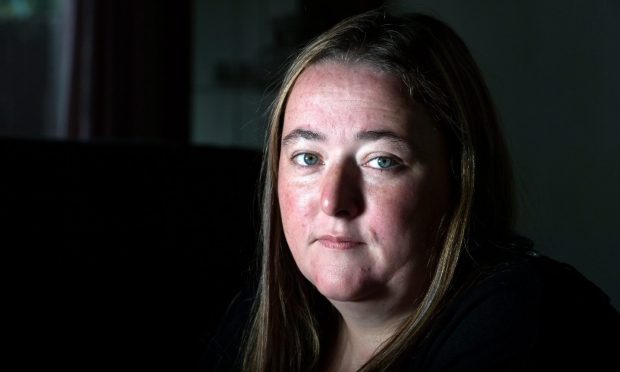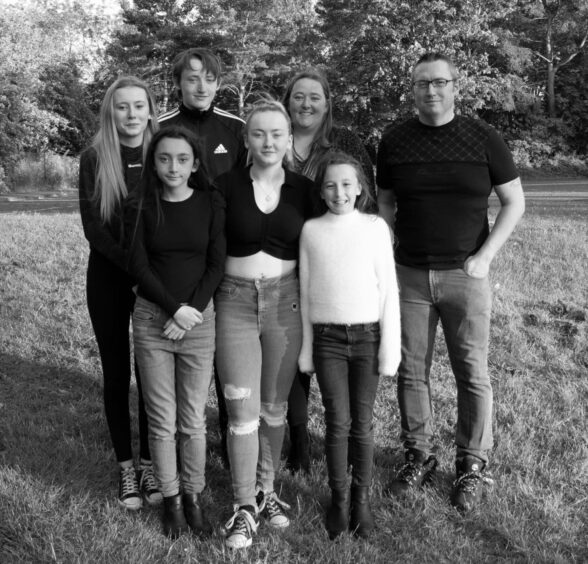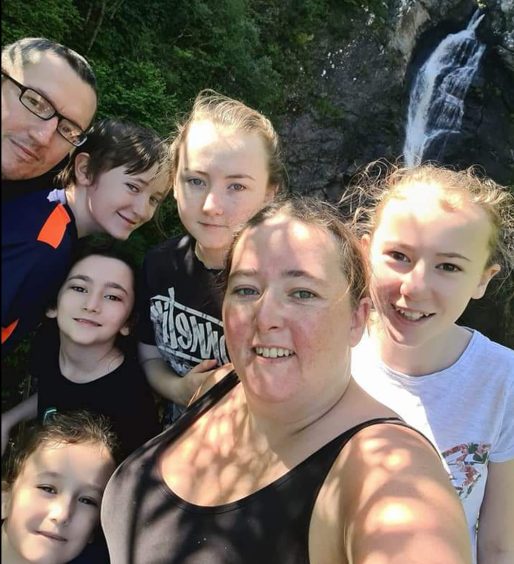Approaching her 20-week scan, Sarah Steele had a very bad feeling.
Her pregnancy had been smooth up until that point but she’d noticed a drop-off in the baby’s movement in the days leading up to her appointment.
A midwife did her best to reassure Sarah.
“It’s probably because you’ve got such a busy household, you’ve not been noticing it,” she said.
That was definitely a possibility.
With three young kids at home already, she’d hardly had a minute’s peace.
Sarah said: “I knew deep down, something wasn’t right. I remember touching my belly, just hoping that I could feel something.”
Unfortunately, Sarah was right.
On the day of her scan in March 2010, a sonographer concluded that her baby had no heartbeat.
‘Was it something I did?’
The next few weeks were a bit of a blur.
Looking after son Jordan, 3, and daughters Danni-Jayne, 2, and Jayme-Lei, 1, meant there wasn’t much time to process it.
But like many people who’ve suffered a miscarriage or stillbirth, Sarah felt some guilt.
She said: “I wanted to know why it happened. Was it something I did?
“We were packing, getting ready to move to a bigger house. Was it because I packed too many boxes? Was I too stressed?
“My son was clinging to me at that stage, he needed me to be around him 24-7. That didn’t leave much time for thinking.”
Doctors carried out tests but ultimately, no reason for the loss of her baby – who she’d named Peyton – was ever given.
On the face of it, she appeared to be perfectly healthy.
Inverness mother: Talking openly about grief helped after baby loss
The timing was hard on Sarah’s husband Jamie, a soldier who had just returned from Afghanistan.
Jamie had recently lost two friends in the conflict and not long before losing Peyton, he had carried one of their coffins at his funeral.
Sarah knew that soldiers had a reputation for carrying a lot of grief with them, without ever talking it over.
But that wasn’t the way she wanted to deal with Peyton’s death.
She spoke about it openly and found help from a friend who’d suffered through a similar loss.
Sarah said: “Telling people was awful. But once they knew, I felt like I could speak to them about it.
“One minute you’re pregnant, the next they’re not here anymore. It’s a very difficult thing to go through and if you haven’t experienced it yourself, it’s hard to imagine.
“But speaking about it helped. It’s what got me through.”
‘She’s my daughter and she always will be’
The idea of going through pregnancy again after her ordeal was not an appealing one.
But Sarah and Jamie were lucky enough to welcome two more daughters, Ellie-Mai and Billie-Jo, into the world in June 2011 and December 2012 respectively.
It’s a full household, but Peyton will always be considered one of Sarah’s six children.
Every year on March 25 – Peyton’s birthday – the family always do something to mark the occasion.
Sarah, who is now 38, said: “Peyton’s my daughter, just like all the others. And she always will be.
“Years ago, they wouldn’t even tell you if it was a boy or a girl and just take the baby away.
“After what happened to me, I found out my gran had two stillbirths and it was just never talked about.
“It shouldn’t be like that. I need the support of my family and being open about this has helped.”
Baby Loss Awareness Week
Baby Loss Awareness Week is a safe space for anyone touched by pregnancy and baby loss to share their experiences and feel that they are not alone.
It runs from October 9 to 15.
The week finishes with the global “wave of light”, a globally-recognised event.
Families are invited to light a candle at 7pm local time and leave it burning for at least one hour to remember all babies that have died too soon.



Conversation